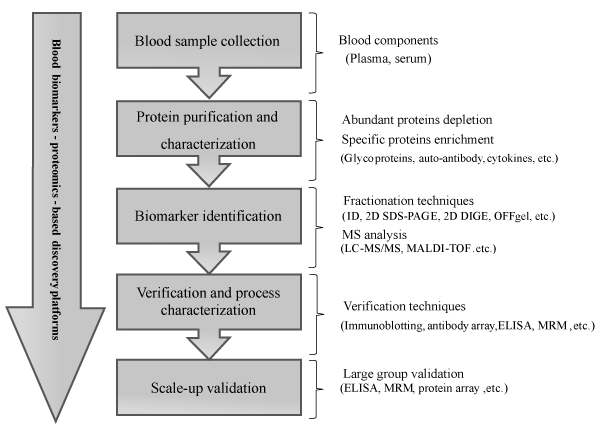
Blood is the most commonly used test sample in biomarker discovery studies. There are abundant proteins of all types in the blood; therefore, the depletion of abundant proteins and the enrichment of specific protein groups, such as glycoproteins, are needed before the identification steps. Protein separation is generally performed by gel electrophoresis and liquid chromatography in proteomic studies. Mass spectrometry is predominantly used for protein identification. LC-ESI-MS/MS and MALDI-TOF/MS are most commonly used for high throughput protein identification platforms. Verification steps for MS-based proteomics data involve immunoassays such as immunoblot, antibody arrays, and ELISAs. Recent developments incorporate a liquid chromatography–coupled mass spectrometry (LC-MS)-based verification system called multiple reaction monitoring (MRM).